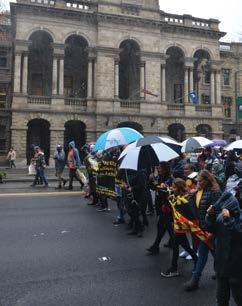
8 minute read
Inside: NAIDOC March and Family Fun Day
Rain didn’t dampen the enthusiasm for this year’s NAIDOC March from Victoria Square (Tarntanyangga) to Parliament House.
In a year with a theme ‘Voice. Treaty. Truth’, hundreds of people braved the weather and marched down King William Street to assemble on the steps of Parliament. A variety of people spoke to the crowd to urge support for Aboriginal peoples and culture in South Australia.
Advertisement
Back at Victoria Square families dodged the rain to enjoy entertainment and information services and catch up with friends and family.
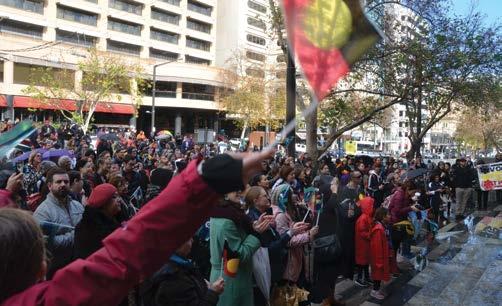
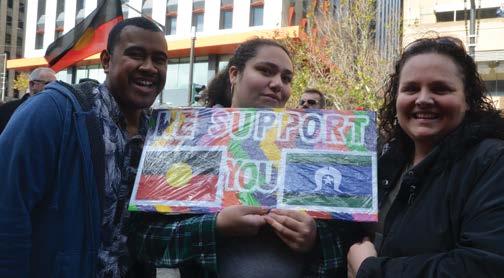
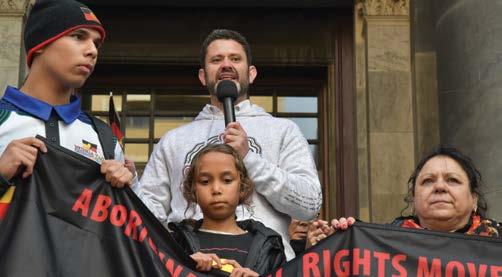

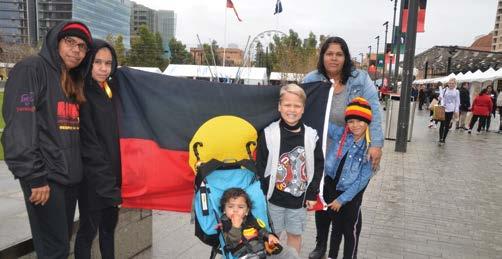
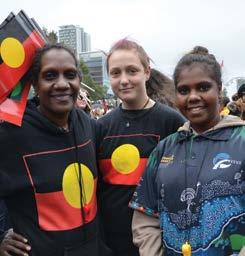
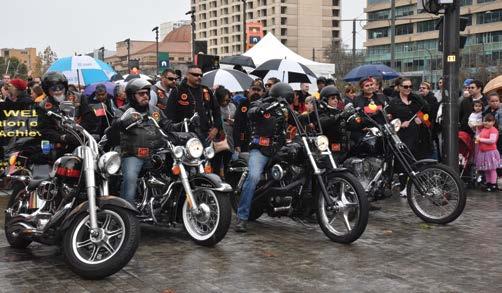
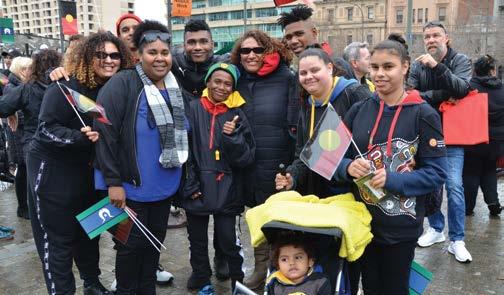
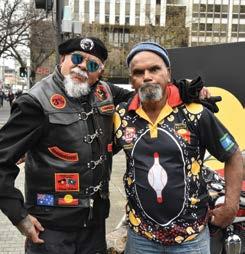
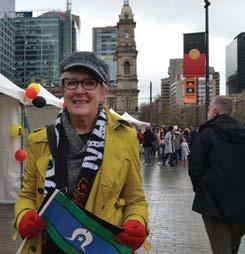
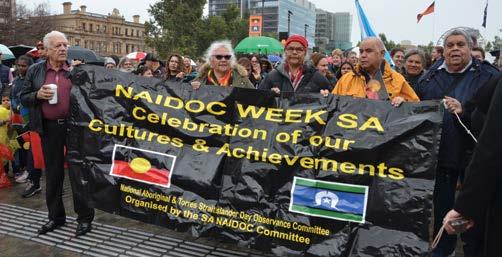

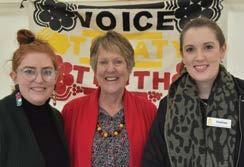
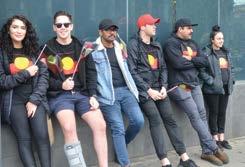
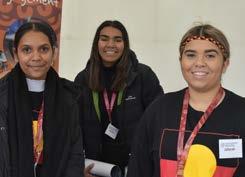


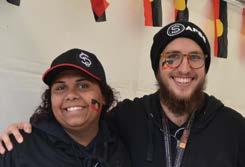
Congratulations to Uncle Lewis!
Well-known and respected Kaurna elder Uncle Lewis O’Brien has been recognised for his many contributions to Aboriginal education, Kaurna language knowledge and cultural understanding with the 2019 Premier’s NAIDOC Award.
The announcement was made at a reception in honour of NAIDOC Week and to announce the winners of the Premier’s Award and the Dr Alice Rigney Prize at Ayers House on Thursday 11 July. The presentations were made by acting Premier Vickie Chapman.
The Alice Rigney Prize went to young student Fraser Raggett in recognition of his hard work, leadership and potential. Finalists for the Premier’s Awards were Parry Agius, The Deadly Nannas and Dr Jenni Caruso.
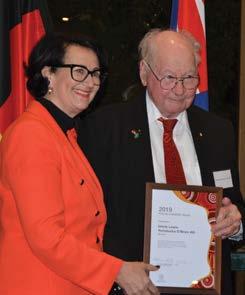
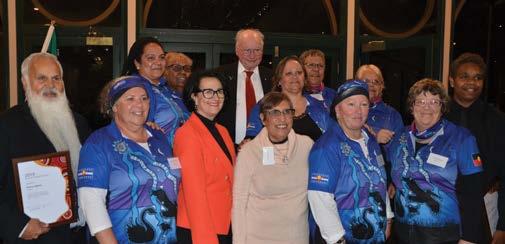
Above: Uncle Lewis with acting Premier Vickie Chapman; All Premier’s NAIDOC winners, Perry Agius, The Deadly Nannas, Jennie Caruso, Uncle Lewis and Fraser Raggatt.
South Australians recognised for NAIDOC
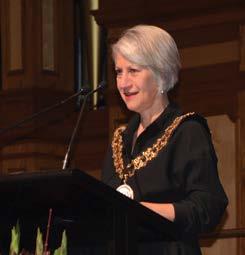
The NAIDOC SA awards were announced at the beginning of NAIDOC week at the Adelaide Town Hall and were presented by the Lord Mayor of Adelaide, Sandy Verschoor.
The NAIDOC SA committee congratulated all the winners of the awards for their significant achievements and valued contribution to the South Australian community.
Charlotte Dare was the recipient of the inaugural LGBTIQ Person of the Year award. Kaurna Elder Lynette Crocker was recognised for her work in reconciliation, native title and government by receiving the inaugural Lord Mayor’s NAIDOC award.
The award winners for 2019 are: • Caring for Country: Merle Simpson • Business of the Year: Yellaka • Male Sportsperson of the Year:
Robbie Young • Female Sportsperson of the Year:
Rikki Milera-Wilson • Apprentice/ Trainee of the Year:
Chaelyn Sumner • Artist of the Year: Taree Sansbury • Male Elder of the Year:
Uncle Roy Coulthard • Female Elder of the Year:
Aunty Yvonne Agius • Scholar of the Year: Sharon Sutton • Inaugural LGBTIQ Person of the Year:
Charlotte Dare • Young Person of the Year:
Courtney Hammond • Lifetime Achievement:
Aunty Raylene Campion • Person of the Year: Sarah Betts
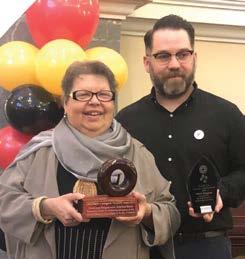
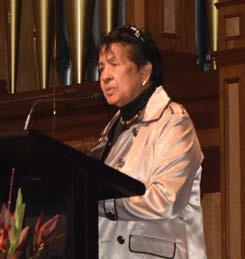
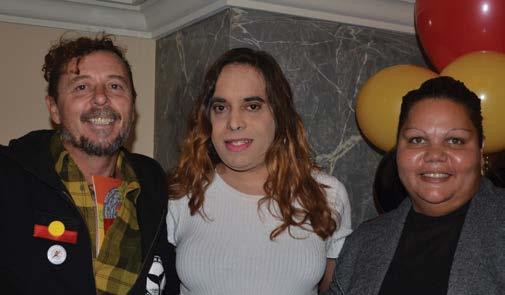
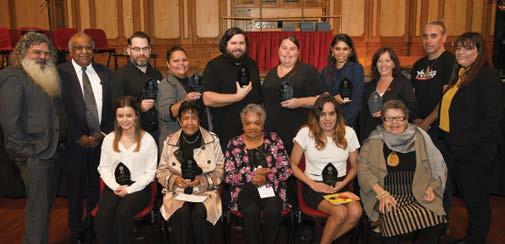
Above, from top: The Lord Mayor Sandy Vershoor; Lynette Croker with Rayne Simpson (accepting award on behalf of his mother Merle Simpson); Charlotte Dare (centre); all 2019 NAIDOC SA Award winners.
A prominent South Australian leader has called for support for a Centre for Aboriginal Culture and Arts, saying that Aboriginal people must have a venue for truth telling about their displacement to enable South Australians to properly understand our shared history. The comments were made by former public service executive and current Chair of the SA Museum’s Aboriginal Advisory Committee David Rathman on delivering the 13th Annual Lowitja O’Donoghue Oration with the topic of ‘Storytelling: Culture, Truth Telling and the Arts’.
Aunty Lowitja O’Donoghue, CBE, former ATSIC Chairperson and Australian of the Year, was present for the address.
A large audience gathered in the historic Bonython Hall at the end of Reconcilaition Week to hear Mr Rathman’s speech.
Mr Rathman argued strongly for the State Government’s proposed Centre for Aboriginal Culture and Arts to be built at the old Royal Adelaide Hospital site.
“It will be a place devoted to Australian Aboriginal Cultures, truth telling, art, history, science and contemporary life.
“A living breathing cultural experience, it must recognise and celebrate the longest continuous human culture on the planet, provide a dynamic cultural and economic hub and be a beacon of reconciliation for generations to come” he said.
Mr Rathman spoke at length about the history of South Australia and the treatment of Aboriginal cultures and governance in our state’s past. “A history based on exclusion, a set of demeaning government practices put in place to create a negative impression of our people. The system considered Aboriginal people as an inconvenience to the business interests of the coloniser” Mr Rathman said.
Mr Rathman said that there was clear evidence that Aboriginal people had social arrangements and clear governance at settlement.
“The Lutheran Missionary Teichelmann observed the Kaurna peoples community arrangement, ‘Each tribe has a certain district of the country as property received by their forefathers, the boundaries of which are fixed’.
However, that governance system and social structures were quickly undermined he explained.
“A lack of sustained Government commitment and the continuing loss of arrangements that enabled Aboriginal people to continue the system of Aboriginal governance were ignored and the arrogance allowed the English colonials to treat our people as irrelevant.
“Aboriginal peoples attempts to build a base of traditional influence to protect interests of the people in dealing with authorities and government was thwarted “An Aboriginal presence on lot 14 will shine a light on the past, demonstrate how we can work together now and forge a path to a future which reflects the true story of country.
“My work is not done, our work is not done” Mr Rathman concluded.
by those in power. This attitude was put in place from the very beginning when the South Australia Act was assented to in England” Mr Rathman explained.
That Act played a strong part in the dispossession of the state’s Aboriginal people, Mr Rathman said.
“The South Australia Act of 1843, ‘an Act to empower His Majesty to erect South Australia into a British Province or Provinces, and to provide for the Colonisation and Government therefore’ proclaimed the Lands of South Australia to be waste and unoccupied lands, fit for the purpose of colonisation.
“The first Colonisation Commission report by the settlement authorities was humiliating for Aboriginal people” said Mr Rathman.
“It introduced what could be described as a form of slavery. The report recommended the provision of Aboriginal ‘asylums’ which would be ‘weather-proof sheds’. In the asylum Aboriginal people could receive food and clothing in exchange for labour” he said.
There were some concessions to Aboriginal interests in early documents Mr Rathman said.
“In that same report the colonisers promised the ceding, for the use of Aboriginal people, 16 acres of every 80-acre allotment of land sold.
“It didn’t happen. I once raised the intention in the report with a Premier of South Australia who said if Aboriginal people called on and proved its right to recover the debt it would send the State broke.”
Mr Rathman spoke about Aboriginal people who had over the years worked towards a better future, including Lowitja O’Donoghue herself, who “stood up against ignorance and racism while remaining a voice for reason and sensible co-operative progress”.
“She was a woman who faced being apart from her family but her inner strength allowed her to stare down barrier makers” he said.
Another inspiring individual was the late Elsie Jackson, who through perseverance and with the support of others against the existing system became the first Aboriginal Teacher Aide to be employed in a state school in South Australia.
“The commitment to Aboriginal people comes from groups or the action of individuals who have taken the time to build a relationship with the community and individual Aboriginal people” Mr Rathman said.
Looking to the future, Mr Rathman said that there remains opportunities to make changes.
“I am optimistic if the South Australian political, business and general population convert intent into to action based on mutual respect and partnership we can move to a positive space where Aboriginal peoples’ perspective is respected and valued as a partner in building a strong healthy Aboriginal community of people.
“The wider Australian people must build a relationship with Aboriginal people and remove the colonised mindset to reform their thinking and close the gap amongst Australians about Aboriginal people to create a future based on transparency and a modern place for Aboriginal governance. Full transcript of the 13th Annual Lowitja O’Donoghue Oration is available at the Don Dunstan website: https://dunstan.org.au/ resources/
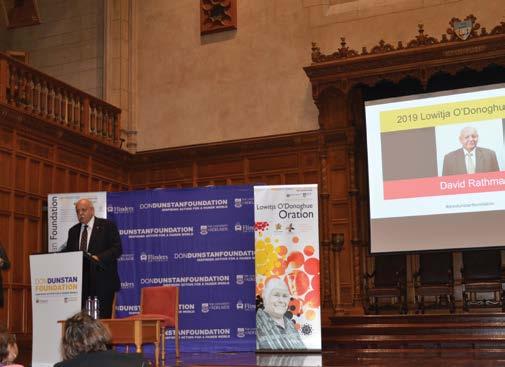
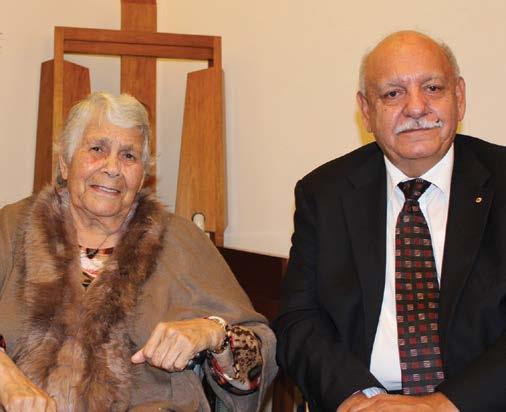
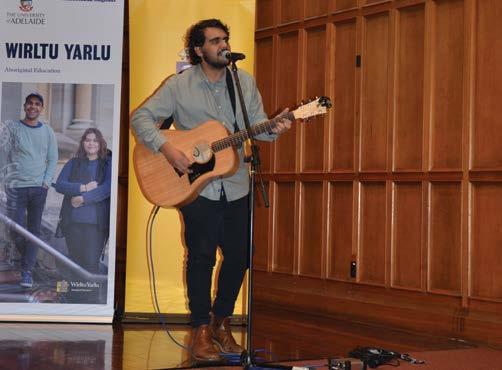
Above, from top: David Rathman presents the 2019 Lowitja ODonoghue Oration; Lowitja O’Donoghue and David Rathman; Nathan May.




